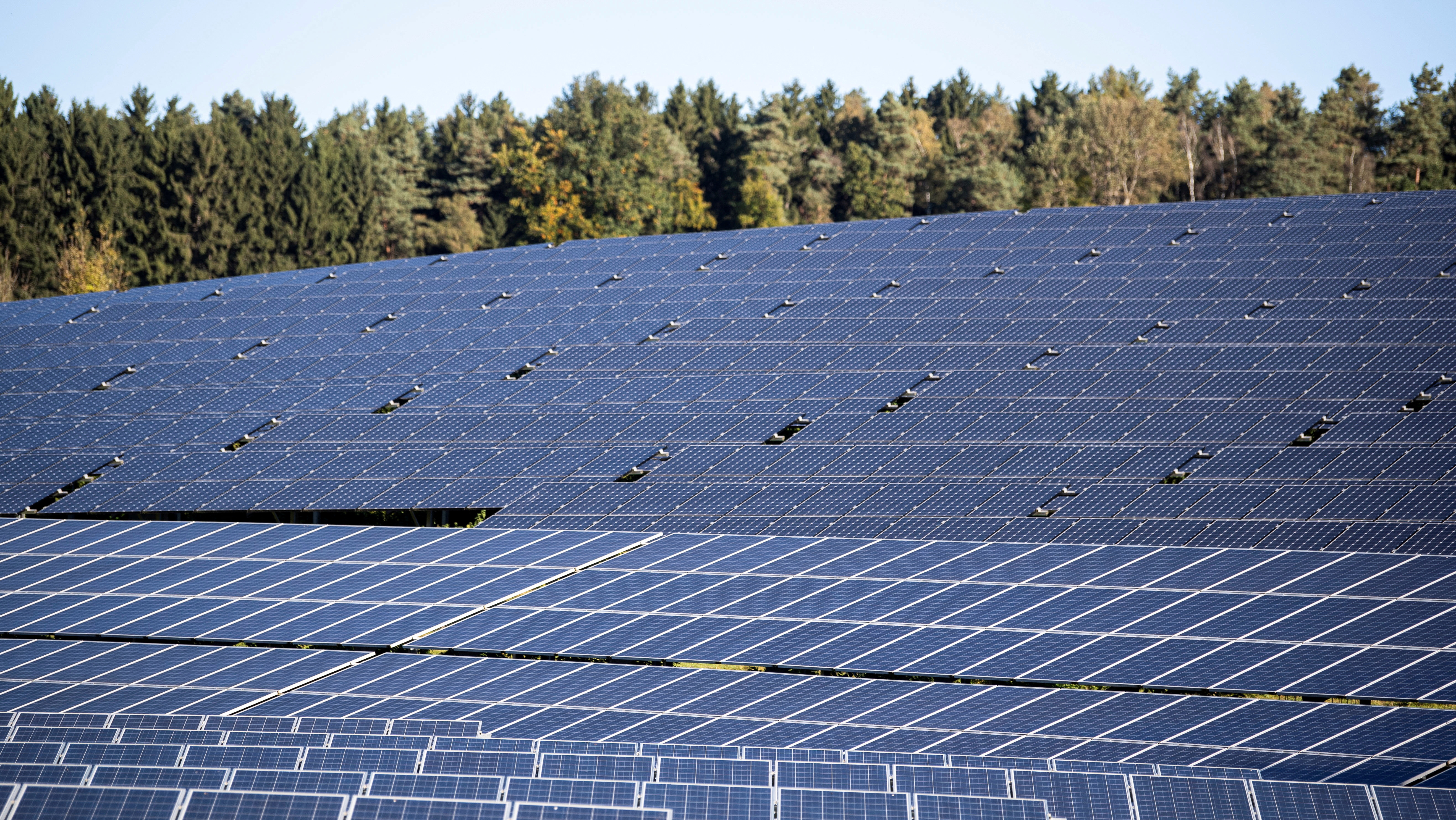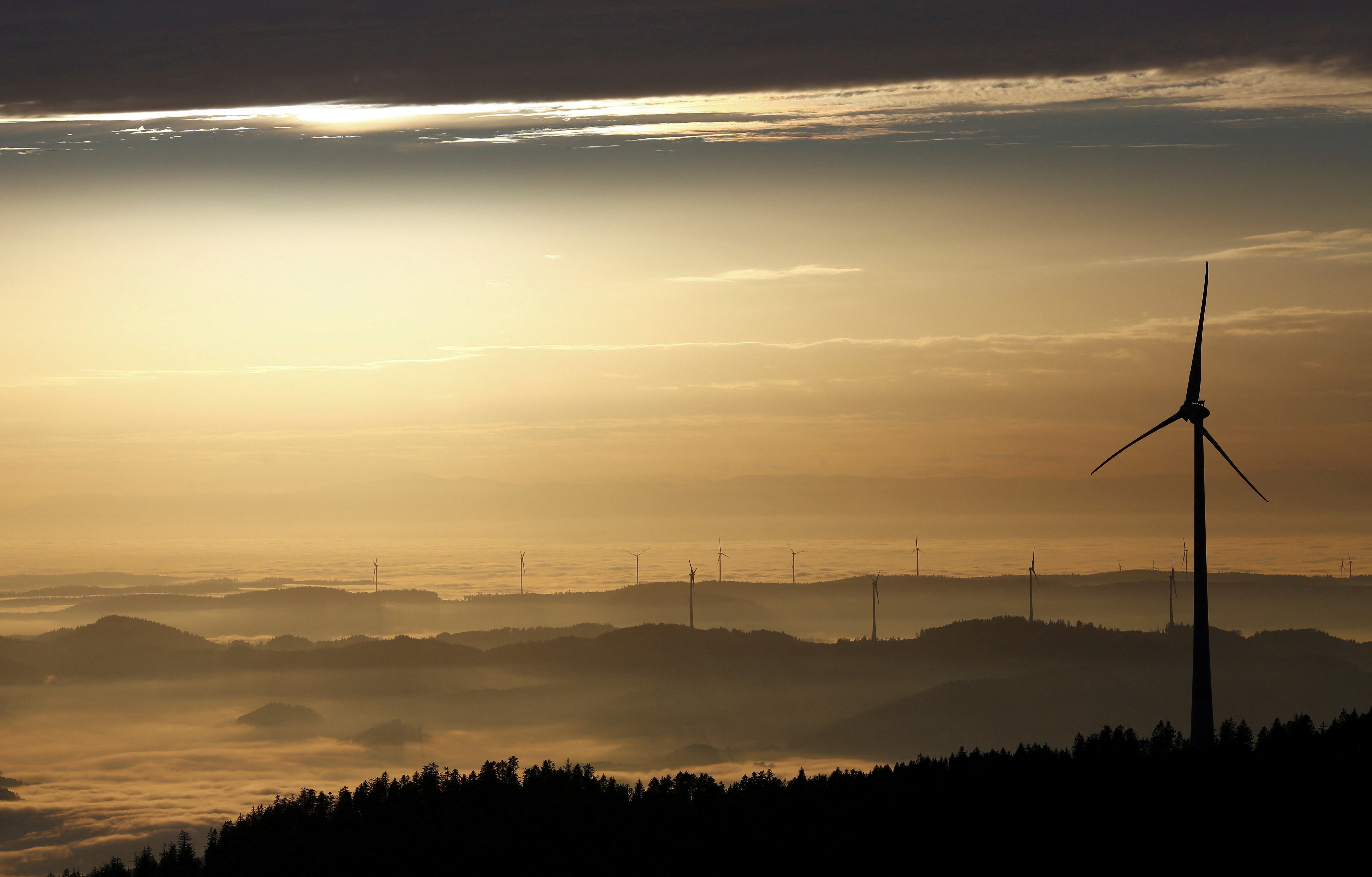Renewables provide 49% of power used in Germany in first half of 2022Reuters2 minute read



1/2
A wind turbine stands out against the sky as the sun sets over the Black Forest with the French mountain range of the Vosges in rear, November 10, 2020. Picture taken from the Brandenkopf lookout near Zell am Hamersbach, Germany November 10, 2020. REUTERS/Joachim Herrmann
Read More
Register now for FREE unlimited access to Reuters.comRegister
FRANKFURT, July 5 (Reuters) - Renewable energy accounted for 49% of German power consumption in the first half of 2022, up 6% percentage points from a year earlier thanks to favourable weather conditions, industry groups said on Tuesday.
Both higher sunshine intensity and wind speeds were behind the trend, utility industry association BDEW and the Centre for Solar Energy and Hydrogen Research (ZSW) said in a statement.
The preliminary figures were calculated under European Union requirements that base market share of individual electricity sources on usage rather than production, a basis also adopted by Berlin for its climate target definitions, they said.
Advertisement · Scroll to continue
The share of renewables in German power consumption hit 50.2% in the first half of 2020.
Germany's power consumption overall declined by 0.8% to 281 billion kilowatt-hours (kWh) in the first six months of 2022.
Domestic electricity production, meanwhile, rose 1.7% to 298 billion kWh, boosting Germany's role as a net exporter of power, the data showed.
Renewable generation, which along with wind includes solar, hydro, biomass, waste and geothermal energy, contributed 139 billion kWh to the total, up 13.5% from a year earlier.
Advertisement · Scroll to continue
That included onshore wind at 59 billion kWh, up 23.0%, photovoltaic at 33 billion, up 17.3%, biomass at 24 billion, up 3.7%, and offshore wind 12 billion, up 5%.
Conventional electricity production from nuclear fuel, coal and gas delivered 159 billion kWh in the six months, 6.7% less than in the same period of 2021.
Germany last year reduced carbon dioxide (CO2) emissions by 39% compared with 1990 but aims to reach a 65% reduction by 2030, for which it needs to roll out more zero-carbon renewables.
read moreAdvertisement · Scroll to continue
Kerstin Andreae, managing director of BDEW, urged the government to provide suitable sites and specify the legal framework faster.
Frithjof Staiss, managing board member of ZSW, said Germany needed to lessen its dependency on Chinese photovoltaic hardware by producing more of its own.




